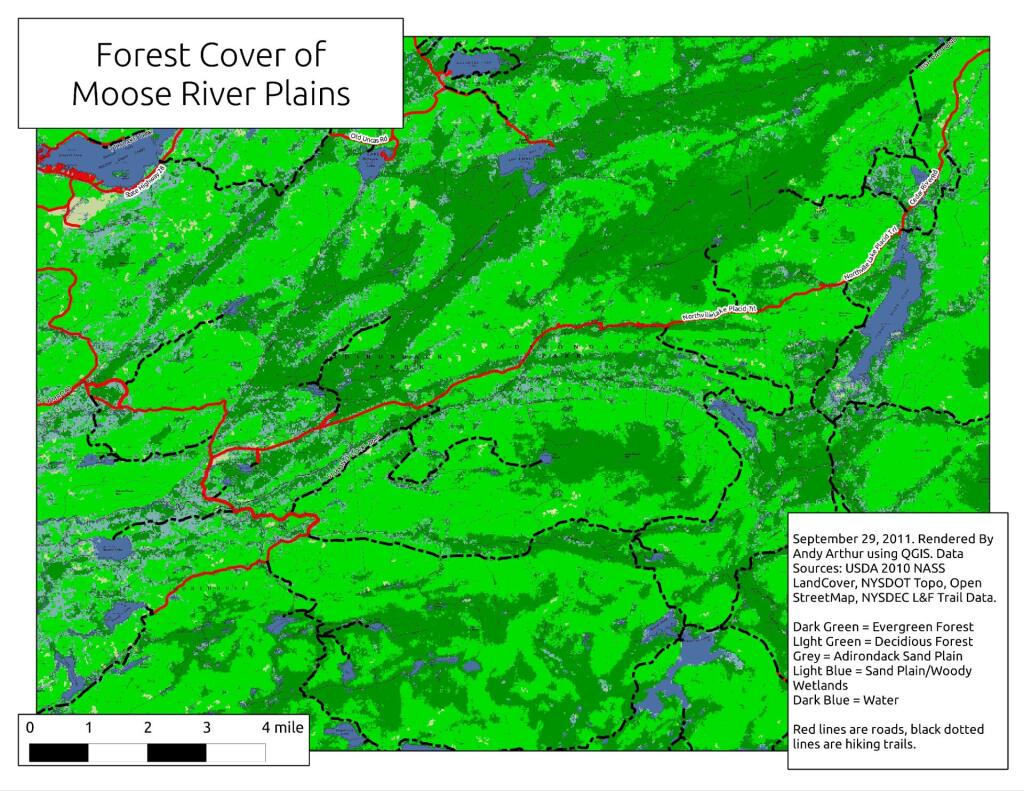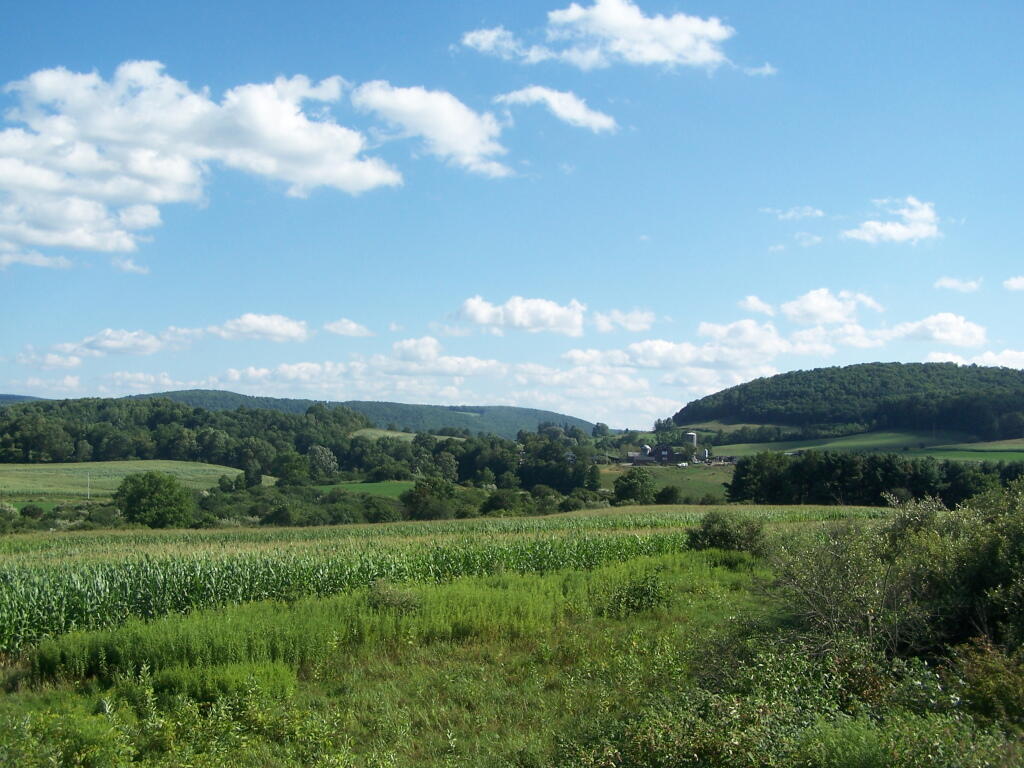Places
New York State – Slavery in 1790 Census
New York State was one of the last states in the northeast to eliminate slavery. You can see slave counts from the 1790 Census, and the density of slavery in the state during that year. Learn more about the history of slavery in New York State: https://en.m.wikipedia.org/wiki/History_of_slavery_in_New_York_(state)
Major East-West US Highways
Farming and the Natural Landscape.
Farmers they say live off the fat of the earth.
In other words, they plant, they raise, the grow food and fiber in the dirt which they either sell or feed to livestock. The same could be said of ranchers, or for that matter loggers — both who generally use and manage natural resources both for today and tomorrow. They work the land in ways that tries to tie down and maximize nuetriant uptake in plants, use science to produce more product with less impact and fewer inputs.
Farms by their very nature are quite adaptable land-use pattern. A farm can become a housing development, a forest or wilderness area, a commerical plaza, an industrial area or a highway. Or it can continue to be agriculture. For one, farms are generally large properties, with one owner. Many farms are hundreds of acres, in some parts of country that are flatter and less agriculturally productive, farms can be thousands of acres managed by a single family. That makes land transfers and wide-spread development or conservation much easier.
Farm land is generally lightly developed, as most fields are dirt that could quickly grow back up to forest if abandoned. Or paved or built over. Farming in many ways is a temporary land use, much more so then when a farm land is paved-over, subdivided, or used for other non-natural purposes. Developed land is often in many hands, and contains buildings, infrastructure, and other things that can be costly to remove. Farm land also is more productive to wildlife, often the home of many species of birds, deer, coyotes and other wildlife. It absorbs carbon dioxide, and is part of a healthy landscape.
Meet The Super Cow – YouTube.
The Belgian Blue. https://www.wikiwand.com/en/Belgian_Blue
Agriculture in New York
An unspoken thing is the many people in our society who are winners with mass-shootings.
1) Television Stations – Nothing gets people watching more television then parents grieving over dead children. More viewers means more advertising revenue. People who feel sad are more likely to go out and buy things to be happy. Billions of dollars in marketing possibilities.
2) Police Officers – Over-time means they take home more money. Moreover, they are able to get make the case to the public that they deserve the latest equipment and toys, and that they should be allowed to expand their forces and obtain higher wages and enhanced pension benefits.
3) Retired Police Officers – Many school districts and public places like malls are hiring retired law enforcement as security consultants.
4) District Attorneys – D.A. are able to make their case for re-election by showing they are taking steps to be tough on crime, they are given opportunities to speak and raise their public profile, which helps as they seek higher office with more power and increased pay.
5) Politicians – Politicians have the ability to champion new laws that can play to their base. They can push gun control or take a tough on crime posture, even if their proposals are either meaningless or even harmful to law abiding citizens.
6) Security/Defense Contractors – While mass-shootings are an extremely rare, very low-risk event, businesses, governments, and schools feel public pressure to invest billions in completely needless upgrades to “harden” buildings from attacks.
7) School Employees – Even school employees benefit from mass-shootings, as it’s an excuse to take taxpayer-funded junkets to learn about the how they can improve safety at their school. Who doesn’t mind spending a few hours in a lecture hall to discuss grim topics with consultants if it’s taxpayer-financed junket to Las Vegas or the Atlantic City (with meals and lodging paid for at taxpayer expense)?


![Untitled [Expires September 10 2024]](https://andyarthur.org//data/photo_005431_large.jpg)